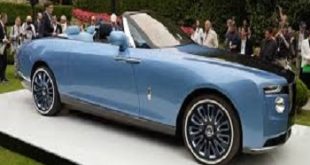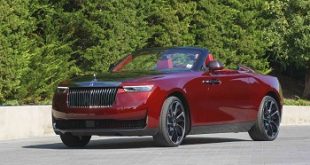On Test: JCB 403E – All Electric 2024
The advent of electric vehicles is no longer confined to passenger cars and commercial transport. The agricultural and construction industries are also embracing the shift towards sustainability. Leading the charge is JCB with its 403E, an all-electric loader set to revolutionize the sector. This article delves into the specifications, performance, and overall impact of the JCB 403E, highlighting its role in pushing the boundaries of what is possible with electric machinery.
Introduction to the JCB 403E
The JCB 403E is the latest addition to JCB’s lineup of electric vehicles. Designed as a compact wheel loader, it offers a sustainable alternative to traditional diesel-powered models. The 403E retains the versatility and reliability JCB is known for while providing the environmental benefits of electric power. As the demand for cleaner, quieter machinery grows, the 403E is positioned to meet the needs of modern construction and agricultural operations.
Key Specifications
1. Electric Powertrain
At the heart of the JCB 403E is a state-of-the-art electric powertrain. It is equipped with a high-capacity lithium-ion battery pack that provides the necessary energy for the loader’s operations. The electric motor delivers consistent torque and power, ensuring that the 403E can perform a wide range of tasks efficiently.
- Battery Capacity: 20 kWh
- Power Output: 36 kW (48 hp equivalent)
- Peak Torque: 135 Nm
2. Charging and Runtime
Charging flexibility is a critical feature of the 403E. The loader can be charged using a standard 240V outlet or via fast-charging stations for quicker turnaround times. Depending on the charging method, the 403E can be fully charged in as little as 2 hours, providing up to 6 hours of continuous operation on a single charge.
- Standard Charge Time: 8 hours (240V outlet)
- Fast Charge Time: 2 hours
- Operational Runtime: Up to 6 hours
3. Compact and Maneuverable Design
The 403E maintains a compact design, making it ideal for use in tight spaces and urban environments. Despite its small size, the loader boasts impressive lifting and loading capabilities.
- Operating Weight: 2,495 kg
- Lift Capacity: 1,100 kg
- Maximum Lift Height: 2.8 meters
Performance in Action
1. Versatility and Efficiency
The JCB 403E is designed to handle a variety of tasks with ease. Its electric motor provides smooth and responsive performance, making it suitable for applications ranging from material handling and landscaping to construction and agricultural duties. The consistent power delivery ensures that the loader can perform effectively even under heavy loads.
2. Zero Emissions and Reduced Noise
One of the standout features of the 403E is its zero-emission operation. As an all-electric vehicle, it produces no exhaust fumes, making it ideal for indoor use and in environments where air quality is a concern. Additionally, the electric motor operates much more quietly than a traditional diesel engine, reducing noise pollution and creating a more pleasant working environment.
3. Low Operating Costs
The transition to electric power brings significant cost savings. The 403E has lower operating costs compared to its diesel counterparts, primarily due to reduced fuel expenses and lower maintenance requirements. Electric motors have fewer moving parts, which means less wear and tear and fewer components to service or replace.
4. User-Friendly Features
JCB has equipped the 403E with a range of user-friendly features to enhance the operator experience. The cab is designed for comfort and visibility, with intuitive controls and a digital display providing real-time information on battery status, power usage, and machine performance.
- Ergonomic Controls: Easy-to-use joystick controls and adjustable seating
- Digital Display: Real-time monitoring of battery levels and system diagnostics
- Climate Control: Enhanced heating and ventilation options for operator comfort
Impact on the Industry
1. Environmental Benefits
The shift towards electric machinery like the JCB 403E has profound environmental benefits. By reducing reliance on fossil fuels, the 403E helps decrease greenhouse gas emissions and air pollution. This is particularly important in urban areas and enclosed spaces, where traditional diesel engines can have significant negative impacts on air quality.
2. Compliance with Regulations
Stricter emissions regulations and sustainability goals are driving the adoption of electric machinery. The JCB 403E allows companies to meet these regulatory requirements more easily, positioning them as leaders in environmentally responsible operations. Compliance with these regulations not only helps protect the environment but can also open up new business opportunities and partnerships.
3. Economic Considerations
While the initial purchase price of electric machinery can be higher than traditional diesel models, the long-term savings on fuel and maintenance can offset this cost. The lower total cost of ownership makes the 403E an attractive option for businesses looking to reduce operating expenses and invest in sustainable technologies.
4. Technological Advancements
The JCB 403E exemplifies the advancements in electric vehicle technology. The development of high-capacity batteries, efficient electric motors, and fast-charging systems has made electric machinery a viable alternative to diesel. These technological improvements are likely to continue, further enhancing the performance and capabilities of electric loaders in the future.
Challenges and Considerations
1. Infrastructure Requirements
The widespread adoption of electric machinery like the 403E requires adequate charging infrastructure. While the loader can be charged using standard outlets, fast-charging stations are essential for minimizing downtime and ensuring efficient operations. Investment in charging infrastructure is crucial for supporting the growth of electric vehicles in the construction and agricultural sectors.
2. Battery Life and Range
Although the 403E offers impressive runtime on a single charge, battery life and range remain important considerations. Ensuring that the loader can complete a full day’s work without needing frequent recharges is essential for maintaining productivity. Advances in battery technology and energy management systems will be key to addressing these challenges.
3. Initial Cost
The higher upfront cost of electric machinery can be a barrier for some businesses. However, the long-term savings on fuel and maintenance, along with potential government incentives and subsidies for electric vehicles, can help offset this initial investment. Businesses must weigh the immediate cost against the long-term financial and environmental benefits.
Conclusion
The JCB 403E represents a significant step forward in the adoption of electric machinery in the agricultural and construction industries. With its powerful electric motor, zero-emission operation, and user-friendly design, the 403E offers a sustainable and efficient alternative to traditional diesel loaders. The environmental benefits, coupled with reduced operating costs and compliance with emissions regulations, make the 403E an attractive option for modern businesses.
As technology continues to advance, the performance and capabilities of electric machinery like the JCB 403E are expected to improve even further. The challenges related to infrastructure, battery life, and initial cost will likely be addressed, making electric loaders an increasingly viable option for a wide range of applications.
In summary, the JCB 403E is more than just a loader; it is a glimpse into the future of machinery in the construction and agricultural sectors. By embracing electric power, JCB is leading the way towards a cleaner, quieter, and more sustainable industry. The 403E not only meets the demands of today but also paves the way for the innovations of tomorrow.
 TontonEpisod.com
TontonEpisod.com


